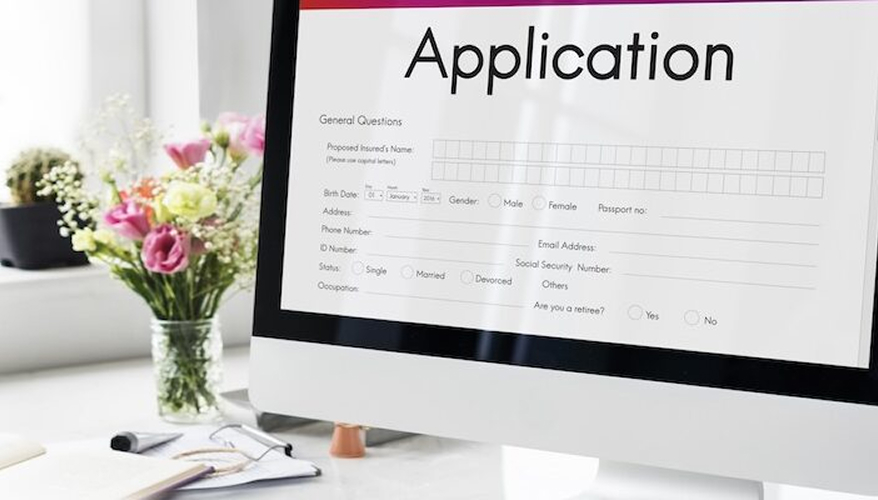Every year, a large number of immigration applications are denied due to frequent errors in the application. Over 300,000 people migrate to Singapore annually for a variety of reasons.
Whether they want to immigrate for better education, job opportunities, or a better quality of life, they must be cautious when filing their application because it will determine the application’s success and, ultimately, their future prospects in Singapore.
There are numerous immigration programs in Singapore, each with its own set of laws, restrictions, and evaluation criteria. The Immigration & Checkpoint Authority (ICA) makes it easier for immigrants to come to Singapore and clarifies immigration program requirements.
Despite the transparency, it is clear that applicants make mistakes that result in the rejection of their applications. This article deciphers some of the seven most common immigration mistakes when seeking immigration to Singapore and how to avoid them.
1) Not Getting The Help You May Need From Reliable Agencies
Immigration applications are pretty difficult to complete. It’s all too simple to make a minor error on an immigration application that causes the procedure to be delayed.
That’s why you need to work with folks who know what they’re doing and are willing to collaborate with you.
Unfortunately, submitting an immigration application is not a learning process where mistakes can be turned into teaching opportunities. A misfiled or erroneous application might have long-term ramifications for you and your family.
While professional assistance may appear to be expensive at first, the expense of misfiling an application both in terms of time lost and additional fees can soon outweigh the cost of doing it correctly in the first place.
There are also scammers out there who are willing to take advantage of those who want to become PRs of Singapore. They take advantage of folks who are unfamiliar with Singapore’s government and processes.
If someone demands payment in advance without first consulting you or discussing the specifics of your case, they are most certainly after your money.
2) Forgetting To Submit All Paperwork And Forms
Applicants frequently fail to submit all required paperwork and documents. While it may appear straightforward, immigration applications entail mountains of documentation. With so many forms and supporting documents, it’s easy to overlook or misplace an essential piece of evidence, resulting in an incomplete application. As a result, the application may be refused, delayed, or even denied.
The majority of your paperwork will not consist only of official forms. You will also be needed to submit “supporting proof” in addition to usual forms. For example, you will need to submit birth certificates, passports, marriage certificates, and tax documents to establish that you are indeed eligible for the program.
It will cause delays if you are missing any supporting evidence. You should also pay special attention to the required type of documentation. Copies of supporting evidence are usually adequate. However, you may be required to produce the original form or a certified copy issued by a government body in some cases.
3) Submitting Documents That Have Not Been Translated
Birth certificates, marriage certificates, and divorce judgments are all likely to be written in a language other than English for many immigrants. Therefore, all documents, including supporting proof, must be translated into English and submitted to the Singapore government immigration agency, the Immigration & Checkpoint Authority (ICA).
All translations must contain a certificate attesting to the translator’s ability to translate from the foreign language into English and certifying that the document’s translation is true and accurate to the best of the translator’s knowledge. Under the signature, the translator should include their name, address, and phone number.
Many people believe that a friend or family member who speaks conversational English can adequately translate documents. But on the other hand, legal documents frequently contain rare terminology that may be unfamiliar to even the most confident conversational English speakers.
A document can be translated by a family member who has the necessary English translation skills. If this isn’t possible, there are a plethora of expert translation services that can accurately translate your documents. The accuracy of the translation is crucial.
4) Failure To Sign Your Application Documents Appropriately
Unfortunately, it is too common to neglect to sign an application in the proper location.
Given the length and complexity of many applications, failing to sign your papers correctly happens more often than you may expect. Depending on the application, a person may be required to sign their name in three or more locations.
An incorrect signature can create significant delays and potentially result in the application being denied. Even if you sign on all of the dotted lines, there’s still a risk you’re signing on the wrong line.
You can avoid this problem by double- and triple-checking your application materials, depending on your level of confidence. If you are concerned about making a mistake, however, hiring a well-versed PR consultancy can save you time and money in the long run.
5) Being Unaware Of Your Criminal History
The Immigration & Checkpoint Authority (ICA) will do a background check as part of your application process, regardless of how authentic your supporting documents are. In addition, all applicants must anticipate that the Singapore Police Force’s Criminal Investigation Department (CID) will be aware of and investigate any criminal background they may have.
Suppose you are unsure of your criminal history because it occurred so long ago or because there are too many arrests to count. In that case, an experienced immigration attorney can conduct a background check, obtain all records, and provide you with a legal opinion on the criminal records’ potential immigration consequences.
If an application is filed after consulting with an immigration attorney, its success will be reliant on precisely answering specific questions and presenting the requisite paperwork. Therefore, the guidance of an immigration lawyer will be essential.
6) Giving False Information Knowingly Or Unknowingly
Even if you have a near-perfect memory, it’s likely that you’ll make a critical error on your program. Unfortunately, the Immigration & Checkpoint Authority (ICA) does not readily give chances to amend the wrongs after a submission is made.
Because the stakes are so high in immigration and citizenship applications, it’s all too usual for people who supply false information to try to pass it off as an honest mistake. As a result, any material that proves to be inaccurate or misrepresentative of the applicant raises ICA’s suspicions.
As previously stated, a missing criminal record will be interpreted as a deliberate attempt to conceal potentially detrimental facts. Likewise, incorrect dates or historical facts will also be deciphered as proof of a conscious effort to deceive government officials.
As a result, you should double-check all of the material on your application and your supporting proofs.
7) Missing Your Chance To Renew Your Immigration Status
Make sure you apply before your current status expires if you want to renew or prolong your immigration advantage.
The processing of immigration applications might take months or even years. If you lose your status while your application is pending, you may be without legal immigration status for an extended length of time. Living in Singapore without legitimate immigration status is illegal. The longer you do it, the more fines you will incur.
You may be forced to leave Singapore and may be required to stay out of the country for three years or longer, depending on how long you have been in the nation without status. You can find out how early you can apply in the application procedures. However, it’s best to submit your application as soon as possible.
Immigrating to Singapore is thrilling, but it can also be a complicated process fraught with complexities and hurdles. Yet, Singaporean immigration is a once-in-a-lifetime chance for many individuals and their families.
The outcome of the application is based on the information and documents provided upon submission, so it is critical that applicants prepare their immigration applications with care and diligence. You should turn your idea into a reality by paying attention to detail and planning ahead of time. Also, to avoid these common mistakes and increase your chances of getting a PR, you should engage an immigration experts to do it for you.








